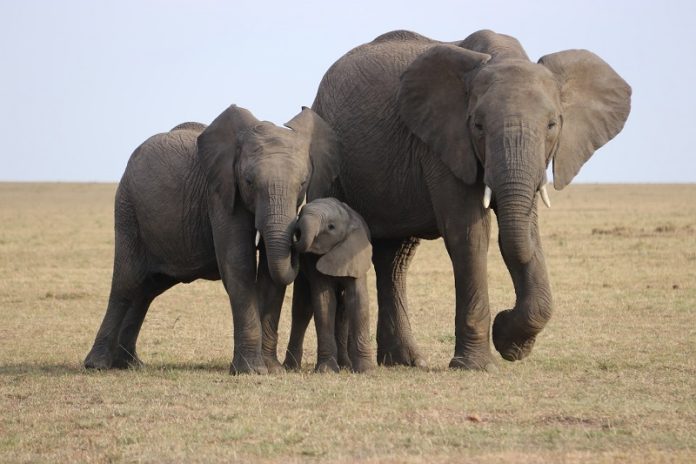
Are elephants important? How about rhinos? Or lions?
What happens if Earth loses its last remaining large animals?
A new study by biologist Felisa Smith at the University of New Mexico shows the profound impacts of losing large-bodied mammals, or megafauna, in ecosystems.
Smith and her team reported the results in Proceedings of the National Academy of Sciences.
Scientists looked to the past to gain clues about the future of large mammals, which are declining at an alarming rate.
“Humans are having drastic effects on large mammals, both directly, such as hunting, and indirectly through land use and climate change,” said Sam Scheiner, a program director in NSF’s Division of Environmental Biology.
“This study shows that these effects can have profound impacts on ecosystems.”
The current conservation status of large-bodied mammals “is dire,” Smith said. “Their decline has serious consequences because they have unique ecological roles.
“But this sort of biodiversity loss has happened before. Humans entering the Americas at the terminal Pleistocene around 13,000 years ago caused a widespread extinction of the large-bodied mammals presents then through some of the same activities that endanger mammals today.”
The researchers used the fossil record of the earlier extinction to explore what happened to the surviving mammals.
The team focused its efforts on a mammal community in the Edwards Plateau of Texas, examining thousands of fossils housed at the Texas Memorial Museum in Austin. By measuring stable isotopes in fossil bones, they characterized diets.
Measurements of teeth and long bones allowed the researchers to estimate body sizes. They were able to reconstruct the ancient food web of the Pleistocene and see how it changed after the extinction.
The results were particularly striking for the felid guild, which once had two species of sabertooth cats, as well as American cave lions, jaguars, and lynx.
In modern times, the decline of elephants, giraffes, rhinos, and other large-bodied mammals has serious ecosystem consequences because of their important roles, such as influencing ecological interactions and biogeochemical cycles.
“It is critically important to understand how the decline or potential extinction of Earth’s last remaining large-bodied mammals might change ecosystems,” said Smith.
“We can’t afford to lose these large-bodied mammals.”



